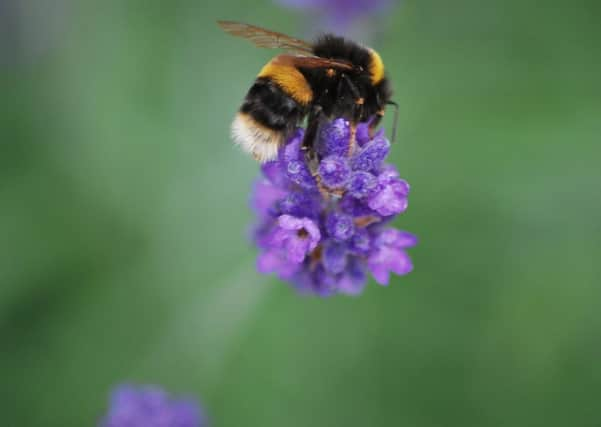Support some of our very bee-st of friends in Heskin


The international cause for Save The Bees will be supported at Heskin Hall Farmers’ Market & Craft Centre, Chorley, for the full day on Saturday, August 19.
The World Honey Bee Day event will include face painting, a treasure hunt, honey tasting and a bee hive presentation.
Advertisement
Hide AdAdvertisement
Hide AdBee friendly shrubs and skincare products will be on sale, as well as bee personalised gifts.
Emma Harvey, of Love Organics, which is hosting the event, said: “Many of our on site stores are coming together to raise awareness and support for such a worthy cause which could affect all of humanity, not just the bee species.
“We’re even dressing up as bees! Join us to raise awareness of the role Bees play with pollination and the food we eat.”
Bees of all varieties live on nectar and pollen. Without bees, pollination would be difficult and time consuming - it is estimated that one-third of the human food supply depends on insect pollination.
Advertisement
Hide AdAdvertisement
Hide AdBees have a long, straw-like tongue called a probiscus that allows them to drink the nectar from deep within blossoms.
Bees are also equipped with two wings, two antennae, and three segmented body parts (the head, the thorax, and the abdomen).
Honeybees are social insects that live in colonies.
A colony of bees generally contains one queen bee which is fertile, up to a few thousand drone bees, or fertile males depending on the season and tens of thousands of sterile female worker bees.
Virgin queens go on mating flights away from their home colony to a drone congregation area, and mate with multiple drones before returning. The drones die in the act of mating.
Advertisement
Hide AdAdvertisement
Hide AdEggs are laid in cells in a wax honeycomb, shaped by worker bees. Larvae are initially fed with royal jelly by worker bees, later switching to honey and pollen. The exception is a larva fed solely on royal jelly, which will develop into a queen bee.
Worker bees cooperate to find food and perform a bee dance or waggle dance to communicate information with each other about resources.
World Honey Bee Day, previously known as Honey Bee Awareness Day, is an idea put together by beekeepers in the USA.
The day is being celebrated as a form of honouring honey bees and beekeepers.
The celebration will also bring the awareness among the people through education and provides the importance and contributions of honey bees to the environment.